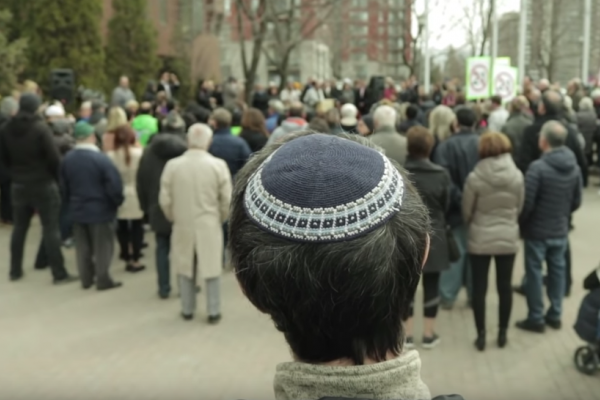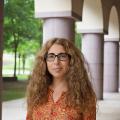During a special weekend session before summer break, the Quebec government’s right-leaning Coalition Avenir Québec (CAQ) party fulfilled one of its 2018 campaign promises by fast-tracking the adoption of Bill 21 — a controversial “secularism” bill that proposes to restrict civil servants in positions of authority from wearing religious symbols while at work.
The CAQ invoked closure to prematurely end debate with the opposition parties in the National Assembly who had yet to complete a detailed study of Bill 21. The vote of 73 in favor to 35 against happened late on Sunday night with various leaders of the opposition parties declaring “a very sad day in Quebec history.”
Supporters and opponents of the bill are united in Quebec’s right to advance legislation that formally declares the separation of church and state, but dissension arises in the implementation of parts of the law that limit the rights and freedoms of certain government workers – including teachers, lawyers, judges, and police officers – by mandating they leave their religion at home from nine to five.
“It’s a bill of major consequence,” said David Birnbaum, a member of the official Liberal opposition. “It’s already created major division.”
Since Bill 21 was proposed on March 28, a sea of people donning turbans, hijabs, and kippahs have filled the streets of Montreal holding French and English signs that read: “It’s what’s in my head. It’s not what’s on my head.”
The protesters maintain the bill discriminates against religious minorities by making them choose between their faith and their work.
In April, Montreal’s city council adopted a joint declaration against the bill, noting that visible minorities make up 33 percent of greater Montreal’s four million people, said Lionel Perez, head of the official opposition on Montreal’s city council. As the leading multicultural city in the province of Quebec, Montreal also receives 75 percent of all of Quebec’s immigration, Perez said.
The CAQ is using its majority status in Parliament to concretize the secularization of Quebec, a process that began in the 1960s through the “Quiet Revolution” when the Quebec government began separating its institutions from the leadership of the Catholic Church. In the last decade, various Quebec political parties, including the Liberals, have made several legislative attempts to address state neutrality that have either been delayed in the courts or have failed because of public dissent.
This new law offers the people of Quebec the opportunity to enshrine secularism — or in French, laïcité — in Quebec’s laws and in its Charter of Rights and Freedoms, said Simon Jolin-Barrette, the Minister of Immigration, Diversity and Inclusiveness, during committee hearings at the National Assembly.
The current Quebec government sees laïcité as a fundamental value of Quebec society and the bill has branded its own model defined by four key principles — the separation of state and religions, religious neutrality of the state, equality of all citizens, and the freedom of conscience and religion.
For Jolin-Barrette, who authored the bill, the law is “moderate and pragmatic,” but goes beyond the neutrality of the state that already exists in Canada. His view endorses a stricter separation of church and state that will be unique to Quebec.
“The rest of Canada is pseudo-secular,” said David Rand, a spokesperson for the Alliance for Secularism who agrees with Jolin-Barrette. “You can’t have police wearing religious symbols while on duty and call that secularism.”
Birnbaum of the Liberal party maintains that the proper expression of state neutrality allows for the fundamental rights of equality of opportunity.
“You can have a Mohawk and 75 rings coming out of your ears,” he said, “a tattoo of a cross, or a Star of David on your forehead, and the state is going to be blind in dispensing your equal rights and your equal access to participate in every way.”
The Impact on Religious Minorities
Besides concretizing laïcité, this law also includes a less disputed requirement of uncovering the face while receiving or offering government services for reasons of identity or security, and the most contentious issue of banning religious symbols for certain government workers.
Christians will be the least affected by the law because of the discreteness of their symbols and the decline of French Canadian religious adherents in Quebec. Their largest compromise will be the removal of courtroom crucifixes and one that has hung above the speaker’s seat in the legislature since 1936. While Catholic leaders are ambivalent about taking down the historical crucifix, said Thomas Dowd, Auxiliary Bishop of the Roman Catholic Archdiocese of Montreal, they are opposed to transferring the crucifixes to a museum.
“A living religious symbol should not be treated as a souvenir,” he said, recommending the crucifixes be given back to the church.
The large populations of Muslims, Sikhs, and Jews of Quebec will be more challenged with compliance to the law. At one of the initial rallies in a Jewish area of Montreal, Carolyn Gehr, an Orthodox Jewish public high school teacher who wears a headscarf spoke to the crowd.
“If Bill 21 becomes law, it is not simply asking me to leave my identity at the door,” she said, “it would be asking me to change the way I practice my religion; to break a requirement of my faith.”
For now, Gehr can keep her position because the law includes a few exemptions. Those working prior to March 28 can continue to wear religious symbols until they are promoted or, for teachers, change school board.
The law also excludes any symbol that relates to Quebec’s cultural heritage or First Nations, and leaves out private religious schools, despite an allotment of $5 million in public funds annually.
Gehr is among a handful of Orthodox Jewish male and female teachers in the public school system. Jewish law requires married Jewish women to cover their hair with a variety of options, including a scarf, wig, or hat. While it does not mandate that Jewish men cover their hair, the kippah is a universal sign of religious observance, said Rabbi Avi Finegold, a member of the Montreal Board of Rabbis.
“I don’t think the government should be in a position of deciding, ‘well this is a minhag [custom], so you can get rid of it,’” he said.
The number of hijab-wearing professionals in the education system makes Muslim women the largest group impacted by the law. Imam Musabbir Alam, co-founder of the Canadian Muslim Alliance, estimates 1000 hijab-wearing teachers as well as 150-200 hijab-wearing lawyers across Quebec.
According to Islamic law, Muslim women are obligated to wear the hijab, but it is not imposed, Alam said. The Koran mentions covering and modesty, which Muslims see modeled by the chosen garments of the wives and companions of Muhammed. No one, including an Imam, has the right to call a woman a bad Muslim for not wearing a hijab, Alam added.
“It’s a responsibility between her and God,” Alam said.
The teaching profession has been heatedly debated and many would have preferred it dropped from the law. Others, including the separatist Parti Québécois, want an expansion of the law to include daycare centers. They view teachers as role models and authority figures whose religious clothing could influence and violate a child’s freedom of conscience.
“The wearing of religious symbols is a form of religious advertising, or religious exhibitionism, or religious proselytizing,” said Rand of the Alliance for Secularism, who believes people have those rights outside of their work for the state.
Gehr, who teaches math and science, said she hopes that her pride in her own religious identity will transmit the message that her students should relish their distinctiveness.
“I feel students benefit from having all kinds of teachers and all different kinds of role models,” she said, “and they see that difference is good.”
Committee Hearings in Quebec City
In May, 36 groups, equally divided by those in favor and against the bill, traveled to the Quebec National Assembly in Quebec City for six days of committee hearings on Bill 21. Quebec’s largest women’s group, the Federation of Women of Quebec, and various human rights and civil liberties organizations claim the law will raise a climate of suspicion against minorities and undermine equal rights.
Other groups believe the bill reflects a maturing Quebec and balances the rights of the individual with the common good of all Quebecers.
“Laïcité doesn’t discriminate; it emancipates,” said Julie Latour, a lawyer and spokesperson at the hearings for “Jurists for Laïcité and Religious Neutrality of the State.”
The Lord Reading Law Society, an association of Jewish lawyers in Montreal, in a brief submitted to the government, claimed that Bill 21 creates an artificial hierarchy foreign to the Charters of Rights and Freedoms, subordinating the fundamental freedoms of conscience and expression below that of secularism.
“It institutes, in our opinion, a new state religion called laïcité,” said Frank Schlesinger, the chairman of the Society’s human rights committee.
Opponents at the hearings also focused on the bill’s lack of clear definition of a religious symbol. A representative from the Centre for Israel and Jewish Affairs explained to the committee the subjectivity of symbols — such as the hamsa, a Middle Eastern amulet — that could be worn with or without religious intent.
The opposition parties — the Liberals, Québec Solidaire, and the Parti Québécois — on the committee studying the bill still remained confused even after Jolin-Barrette offered a refined definition during post-hearing debates. His amendment clarified those symbols as any object, such as a garment, a symbol, an adornment, an accessory, or headgear, if worn in connection with a religious belief or could reasonably be considered a religious item.
Jolin-Barrette denied the opposition’s repeated requests for accompanying guidelines to the definition and an exemption for educators currently in post-secondary training.
Upsetting opponents of the bill even further, the CAQ is trying to pre-empt court challenges by pushing the law through using a particular constitutional tool called the “notwithstanding clause” from the Quebec and Canadian Charters of Rights and Freedoms. The clause allows fundamental freedoms of the constitution to be suspended for a superior reason.
But those challenging the bill see no urgency or threat to state neutrality that would require overriding the Charters. In the 1970s, Quebec used this clause for the preeminent motive of preserving its distinct French language, which was at risk within the larger Anglophone and multicultural Canadian and North American societies.
A similar fearful impulse may be a catalyst for the new law.
“I think it’s cultural insecurity,” said Pierre Anctil, a professor who specializes in the history of Quebec at the University of Ottawa.“It’s also the issue that Quebec was secularized later,” he said, “and it’s the issue of the perceived influence of France and other countries where these debates were made a long time ago.”
France separated from its Catholic overseer much earlier than Quebec when it passed its secularism law in 1905. Challenges to secularism arose in France with the waves of immigration in the last two decades, said Perez of Montreal’s city council, resulting in a lack of integration, marginalization, and a high unemployment rate for the new arrivals.
“I don’t think France is necessarily an example of what works,” Perez said. “It’s an example of what doesn’t work.”
For Perez, who wears a kippah to work, a more appropriate model for Quebec would be the rest of Canada and the United States, where individual rights are celebrated and state employees are permitted to wear religious symbols.
Canada’s Reaction and the Future
The prime minister of Canada, Justin Trudeau, has spoken out against the bill, but the province of Quebec maintains the status of a unique nation within Canada, which enables it to foster a distinct identity — including its relationship with religions — separate from the pluralistic vibe of the rest of Canada.
City of Montreal leaders worry about the consequences of the law for their city, whose residents make up half of Quebec’s population. Religious coalitions and school boards in Quebec are already preparing to challenge the law and some municipalities in Montreal claim they will not enforce it. The CAQ has pre-emptively promised to enforce the law through surveillance and disciplinary measures.
While there are a number of religious minorities that have been a part of the fabric of Quebec society for generations, Perez of Montreal’s city council worries about Quebec’s image in the international community and the law’s potential effect of deterring immigration.
“Some people might view Quebec as being less tolerant and less inclusive,” he said, “and might not want to come here.”
Got something to say about what you're reading? We value your feedback!





